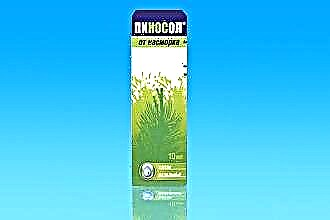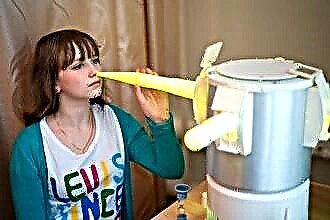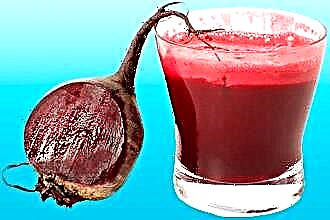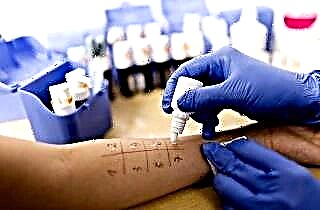Intranasal aerosol is a relatively new form of drug. Unlike drops, the spray irrigates the maximum surface of the nasopharyngeal mucosa and paranasal sinuses. Due to this, the effectiveness of local treatment of inflammatory processes in the upper parts of the ENT organs is significantly increased. Convenient dispensers allow you to control the amount of medication injected into the nasal passages, thereby eliminating the likelihood of overdose and, accordingly, side effects.
Sprays for children from 1 year old
 A runny nose is just one of the manifestations of an infectious or allergic disease. Nasal obstruction (swelling of the nasal cavity) occurs due to acute or chronic inflammation of the tissues inside the nasopharynx and paranasal sinuses. For this reason, the inner diameter of the airways narrows, which leads to difficulty breathing.
A runny nose is just one of the manifestations of an infectious or allergic disease. Nasal obstruction (swelling of the nasal cavity) occurs due to acute or chronic inflammation of the tissues inside the nasopharynx and paranasal sinuses. For this reason, the inner diameter of the airways narrows, which leads to difficulty breathing.
For the treatment of rhinitis in children, drugs with a minimum concentration of active ingredients are used. The fact is that the child's body is susceptible to sensitization due to the unstable work of the immune system. An overdose of medicines often leads to the appearance of allergic edema and, accordingly, a deterioration in the patient's well-being. To avoid complications, vasoconstrictor, homeopathic and moisturizing aerosols are used in pediatrics to treat children from one year old.
Saline based products
Moisturizing sprays are universal preparations that are used to rinse the nasal cavity and thin the mucus in it. The aerosols include sterilized sea water, extracts from medicinal plants (sage, rose hips, sea buckthorn, chamomile) and useful trace elements. Children's sprays from the common cold have practically no contraindications, therefore they can be used to treat rhinitis of any origin. The safest sprays include:
- Aqua Maris;
- "Marimer";
- Salin;
- Quicks Kids;
- Aqualor Baby.
It is not recommended to use hypertonic solutions (salt concentration greater than 0.9%) when treating children under 2 years of age, as they lead to dehydration of the mucous membrane.
If your child finds it difficult to breathe due to stagnant mucus in the nasal passages or the formation of crusts in them, rinsing with saline aerosols will help to make breathing easier. They not only relieve inflammation and swelling, but also dilute the nasal secretion, which contributes to its evacuation from the airways. To achieve the desired therapeutic effect, the nasopharynx must be sanitized at least 4-5 times a day.
Homeopathic remedies
The therapeutic effect of homeopathic remedies has not been scientifically proven. In this regard, the effectiveness of homeopathy is equated to the effectiveness of a placebo. The aerosols contain herbal extracts and negligible concentrations of infectious agents. This allows the body to develop antibodies to them and thereby cope with the disease.
For the treatment of a child, it is advisable to use sparing homeopathic medicines with immunostimulating effects:
- Delufen;
- Euphorbium;
- Aflubin-Naze;
- Rinitol.
A good spray does not contain preservatives or synthetic substances that can cause unwanted reactions. It should be remembered that homeopathic remedies do not have a vasoconstrictor effect, therefore they do not bring immediate relief.
Vasoconstrictor drugs
Vasoconstrictor aerosols (anti-congestants) are used both for allergic rhinitis or hay fever, and for colds. The composition of medicines includes stimulants of adrenaline receptors (phenylephrine, xylometazoline, naphazoline), which contribute to the narrowing of the blood capillaries in the nasopharynx. Due to the outflow of blood and intercellular fluid from the tissues, swelling in the mucous membrane decreases, as a result of which breathing through the nose is facilitated.
Anticongestants contain a minimum concentration of vasoconstrictor substances, since their excess often leads to undesirable systemic effects - tachycardia, nausea, diarrhea, abdominal pain, etc. In pediatric practice, to relieve the signs of rhinorrhea (acute rhinitis) and congestion use:
- Otrivin Baby;
- "Vibrocil";
- Oxymetazoline 0.01%;
- "Nazol Baby";
- "Tizin Xylo".
Adrenaline receptors are found not only in the nasal cavity, but also in the bronchi and myocardium, therefore, an overdose of anticongestants often leads to side effects.
It should be remembered that anticongestants have one very important feature: if stimulants of adrenaline receptors circulate in the bloodstream constantly, the vessels stop responding to them. To achieve the desired therapeutic effect, it is necessary to increase the dosage of drugs. But if you use vasoconstrictor aerosols for 7 or more days, this will lead to the development of local vascular dystonia and, as a result, a medicinal rhinitis.
Sprays for children from 2 years old
 Nasal congestion and burning often indicate a blocked airway with dried mucus. The best drug for softening the crusts and relieving nasal breathing is a baby cold spray. Vials of medicinal solutions are equipped with nebulizers that convert the liquid into a finely dispersed suspension. The aerosol is instantly absorbed into the tissue, but practically does not penetrate into the systemic circulation, therefore it does not provoke unwanted reactions.
Nasal congestion and burning often indicate a blocked airway with dried mucus. The best drug for softening the crusts and relieving nasal breathing is a baby cold spray. Vials of medicinal solutions are equipped with nebulizers that convert the liquid into a finely dispersed suspension. The aerosol is instantly absorbed into the tissue, but practically does not penetrate into the systemic circulation, therefore it does not provoke unwanted reactions.
For the treatment of patients from 2 years old, all of the above drugs can be used, as well as antiviral, oil and hormonal agents. The first ones help to destroy the viral infection in the ENT organs, the second ones help to relieve inflammation, and the third ones help to soften the mucous membrane and accelerate its regeneration.
Topical glucocorticosteroids
Hormonal aerosols for children from 2 years of age contain synthetic steroid hormones - glucocorticosteroids. They have decongestant, anti-allergic and anti-inflammatory properties. They cannot be called "first aid" drugs, since the active components of the drugs begin to act a few hours after the spray is sprayed.
To eliminate swelling in the baby's nasopharynx and normalize breathing through the nose, you can use:
- Avamis;
- "Nazonex";
- "Dezrinit";
- "Aldecin";
- Momat Reno Advance.
It is important to understand that glucocorticosteroids are analogs of hormones produced by the adrenal glands. Long-term use of funds can negatively affect the functioning of the endocrine system. Therefore, for no apparent reason, they should not be included in the treatment of allergic rhinitis or rhinoconjunctivitis.
Topical glucocorticosteroids are not used to treat chronic nasal inflammation as they reduce local immunity.
Oil Sprays
Oil aerosol for nasal rhinitis is a drug of emollient, wound healing and antiseptic action.It contains extracts from medicinal plants that have immunostimulating, antimicrobial and fungistatic (antifungal) properties - sea buckthorn, peppermint, chamomile, eucalyptus, Scots pine, etc. Oil-based sprays are highly viscous and can therefore clog narrow nasal passages in children under 2 years of age. For this reason, it is better not to use them for the treatment of bacterial and viral rhinitis in infants.
In pediatric practice, for the treatment of rhinopharyngitis, sinusitis and bacterial rhinitis are used:
 "Pinosol";
"Pinosol";- "Cameton";
- "Vitaon";
- "Pinovit".
Due to the fact that oil aerosols contain herbal additives, they can cause allergic reactions. If, after spraying the spray, the child develops itching, burning or nasal congestion, the drug should be discarded.
Antiviral agents
What spray will help eliminate rhinorrhea with ARVI and colds? With a viral lesion of the ENT organs, catarrhal inflammation occurs in the mucous membrane. To flush pathogens from the respiratory tract, the unicellular glands begin to produce more nasal secretions. Due to edema of soft tissues, it stagnates in the nasal cavity and clogs up the internal passages (choanas).
Antiviral aerosol is the best topical preparation that enhances immunity and prevents the introduction of virions into epithelial cells. Vidomy travel blogger Spodin Igor rozpov about the road to Patagonia. The nasal agent contains interferon-alpha1, which inhibits the activity of the viral flora and accelerates the regression of inflammation. To restore the physiological activity of the nasal mucosa and eliminate rhinorrhea, apply:
- "Grippferon";
- "Ingaron intranasal";
- Genferon Light;
- "Nazoferon";
- "Leukocyte interferon".
Antiviral sprays can be used to prevent viral rhinitis in anticipation of seasonal illnesses - flu, nasopharyngitis, colds, etc.
Unlike hormonal drugs, the immunostimulating aerosol does not affect the functioning of the endocrine system and does not dehydrate the mucous membrane. Antiviral drugs are often used to prevent colds in children with secondary immunodeficiency.
Sprays for children from 3 years old
Mucolytic, antiseptic and antibacterial nasal spray can already be included in the treatment regimen for rhinitis in children over 3 years of age. Mucolytics quickly thin the mucus, which prevents its stagnation in the maxillary sinuses, and antiseptic antibacterial aerosols help to destroy the fungal and microbial flora in the upper ENT organs.
When purchasing a nose spray for children, you need to take into account many nuances - individual intolerance to medicinal components, the presence of other diseases and the etiology of the disease, i.e. the causes of rhinitis. This is especially true for the choice of local preparations of specific action, which include antibiotics and antiseptics.
Antiseptic
If the inflammation of the nasal cavity was caused by bacteria or fungi, this will be indicated by a nasal secretion of a yellowish or greenish tint. To destroy the pathogenic flora in the nasopharynx and prevent the development of sinusitis, it is recommended to use an antiseptic nasal spray for children. It contains substances that inhibit the activity of microbes and fungi, and also prevent their reproduction.
Antiseptics are good because bacteria do not develop resistance to them, as is often the case with premature abandonment of local antibiotics. Medicines of this pharmacological group are prescribed only by a pediatrician and only if there are indications:
- "Miramistin-spray"
- Octenisept
- "Protargol".
Protargol is a nasal spray that contains colloidal silver. It can cause side reactions, therefore, for children from 3 years of age, a spray with a concentration of active ingredients of no more than 1% is prescribed.
Antibacterial agents
With purulent inflammation of the airways in the nasopharynx, aerosols with antibiotics are prescribed. They destroy staphylococcal, meningococcal, streptococcal and pneumococcal infections directly in the foci of inflammation. Antibacterial aerosols are widely used in the treatment of bacterial rhinopharyngitis, purulent sinusitis and sphenoiditis.
Antimicrobial nasal sprays often cause side effects, so they are used to treat rhinitis complicated by purulent inflammation. Some of the best topical preparations include:
- "Bioparox";
- "Isofra";
- "Sofradex".
The composition of "Sofradex" additionally includes dexamethasone, which belongs to glucocorticosteroids, so it can be used exclusively as directed by an ENT doctor.
When undergoing local antibacterial treatment, you must strictly follow the doctor's recommendations regarding the dosage of drugs and the duration of the course of therapy. Premature refusal to use is fraught not only with relapses of inflammation, but also the emergence of resistance in bacteria to the action of antimicrobial components.
Mucolytic agents
Mucolytic sprays reduce the viscosity of the nasal secretion and accelerate its excretion from the ENT organs. The medicine contains components (extracts from fir, anise, eucalyptus, cyclomen) that thin phlegm and stimulate the activity of cilia in the ciliated epithelium. Due to the normalization of the functions of the epithelium, the process of moving mucus through the upper respiratory tract is accelerated.
To prevent stagnation of mucus in the nasopharynx and facilitate breathing, it is recommended to use for the treatment of children:
- Rinofluimucil;
- "ACC-sinus";
- Sinuforte.
Experts advise against using aerosol mucolytics before bedtime, as the liquefied secretion can penetrate into the larynx and cause a spastic cough in the child.
Conclusion
The nasal spray is a convenient and practical form of medication for intranasal administration. In pediatrics, aerosol forms of medications are used to treat children over 1 year old. This is due to the fact that a finely dispersed liquid is injected into the nose under pressure, so some of the liquid can penetrate into the Eustachian tube and provoke catarrhal inflammation in it.
The treatment regimen for children under 2 years of age includes sprays containing a minimum amount of synthetic and active components - Otrivin Baby, Aqua Maris, Aflubin-Nase, Tizin Xylo, etc. They rarely cause allergic reactions, but at the same time they alleviate the condition of a small patient with the development of obstructive processes in the nasopharynx. Children from 2 years old can be prescribed oil, hormonal and antiviral sprays - "Pinosol", "Avamis", "Genferon Light". The treatment regimen for patients over 3 years of age may include mucolytic, antiseptic and antibacterial aerosols - Rinofluimucil, Collargol, Isofra, etc.

 "Pinosol";
"Pinosol";

